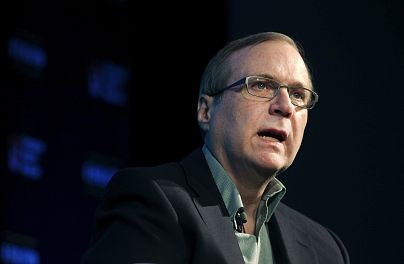Allen died in Seattle from complications from non-Hodgkin's lymphoma, his family said in a statement released by Vulcan Inc, a company Allen founded to pursue his various interests.
Paul Allen, who co-founded software giant Microsoft with Bill Gates before turning his attention to sports and philanthropy, died on Monday, his family said in a statement. He was 65.
 ADVERTISEMENT
ADVERTISEMENT
 ADVERTISEMENT
ADVERTISEMENT
Allen died in Seattle from complications from non-Hodgkin's lymphoma, according to the statement released by Vulcan Inc, a company Allen founded to pursue his various interests.
Allen was the 27th-richest person in the world, according to the Bloomberg Billionaires Index, which placed his net worth at $26.1 billion. Most of his wealth came from stock in Microsoft, which he and Gates co-founded in 1975.
Within two decades, Microsoft's Windows operating system became the dominant way that people used personal computers. Though the company later faltered after a US Justice Department antitrust lawsuit, it remains among the largest US companies.
Allen poured much of his wealth and interest into professional sports. He was the owner of the NFL's Seattle Seahawks and the NBA's Portland Trail Blazers.
In 2010, he committed to give the majority of his riches to charity, signing a "giving pledge" promoted by Gates and billionaire investor Warren Buffett.
His sister, Jody Allen, called him "a remarkable individual on every level" and said that his family and friends "were blessed to experience his wit, warmth, his generosity and deep concern."
Allen revealed the return of his non-Hodgkin's lymphoma two weeks ago, writing on Twitter that the disease he battled in 2009 had returned and that he had begun treatment. At the time his doctors were optimistic he would see a good result, Allen said then.











